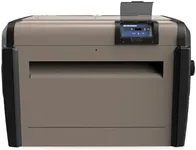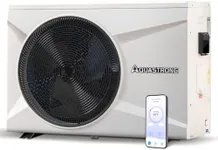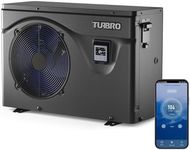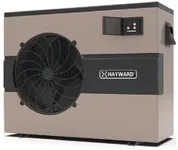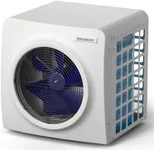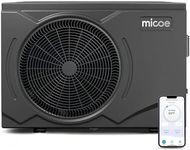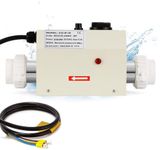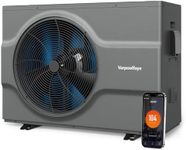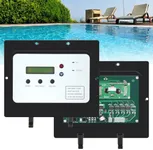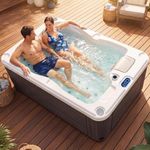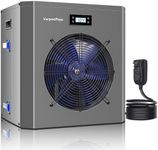Buying Guide for the Best Above Ground Pool Heaters
Choosing the right above-ground pool heater can significantly enhance your swimming experience by extending your pool season and ensuring comfortable water temperatures. When selecting a pool heater, it's important to consider various factors such as the size of your pool, your climate, and your heating preferences. Understanding the key specifications will help you make an informed decision that best suits your needs.Heater TypeThere are three main types of above-ground pool heaters: gas heaters, electric heat pumps, and solar heaters. Gas heaters are known for their quick heating capabilities and are ideal for those who want to heat their pool on demand. Electric heat pumps are energy-efficient and work best in moderate climates, as they extract heat from the air. Solar heaters are environmentally friendly and cost-effective in the long run, but they depend on sunlight and may not be as reliable in cooler or cloudy climates. Choose a heater type based on your climate, energy preferences, and how quickly you want your pool to heat up.
BTU OutputBTU (British Thermal Unit) output measures the heating power of the pool heater. The higher the BTU, the faster the heater can warm up the pool. For small to medium-sized pools, a heater with a lower BTU output (50,000-100,000 BTUs) may be sufficient. Larger pools or those in cooler climates may require a higher BTU output (100,000-200,000 BTUs or more) to maintain a comfortable temperature. Consider the size of your pool and the average temperature of your area to determine the appropriate BTU output for your needs.
Energy EfficiencyEnergy efficiency is an important factor to consider, as it affects both the operational cost and environmental impact of the pool heater. Look for heaters with high energy efficiency ratings, which indicate that they use less energy to produce the same amount of heat. Electric heat pumps and solar heaters are generally more energy-efficient than gas heaters. If you are environmentally conscious or want to save on energy bills, prioritize energy-efficient models.
Installation and MaintenanceThe ease of installation and maintenance can vary between different types of pool heaters. Gas heaters typically require professional installation due to gas line connections, while electric heat pumps and solar heaters can often be installed by the homeowner with some basic tools. Maintenance requirements also differ; gas heaters may need regular servicing, while solar heaters generally require minimal upkeep. Consider your comfort level with installation and maintenance tasks when choosing a pool heater.
Climate SuitabilityThe climate in your area plays a significant role in determining the best type of pool heater for you. Gas heaters perform well in all climates, including colder regions, as they can quickly raise the water temperature. Electric heat pumps are more efficient in moderate to warm climates, as they rely on ambient air temperature to heat the water. Solar heaters are most effective in sunny, warm climates but may struggle in areas with limited sunlight. Assess your local climate to choose a heater that will perform optimally in your conditions.
Size and CompatibilityEnsure that the pool heater you choose is compatible with the size and type of your above-ground pool. Heaters come in various sizes, and selecting one that matches your pool's dimensions is crucial for efficient heating. Check the manufacturer's recommendations for pool size compatibility and ensure that the heater can be easily integrated with your existing pool setup. Proper sizing and compatibility will ensure optimal performance and longevity of the heater.
